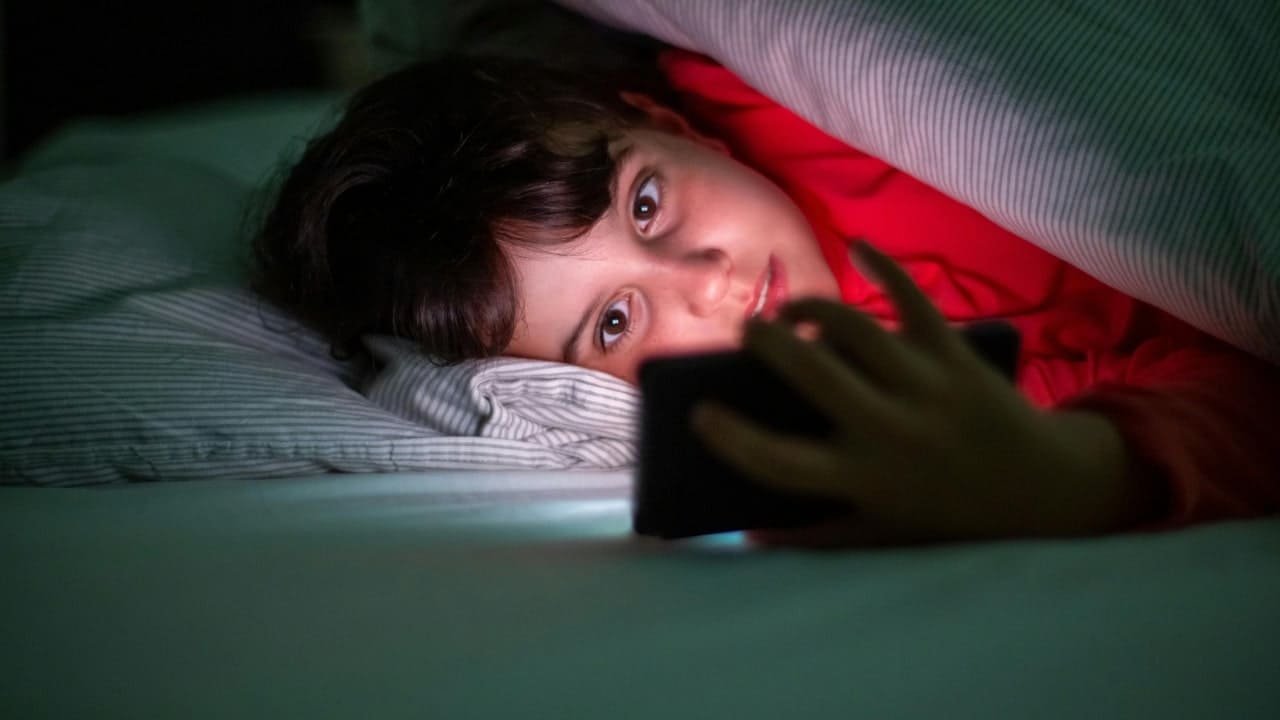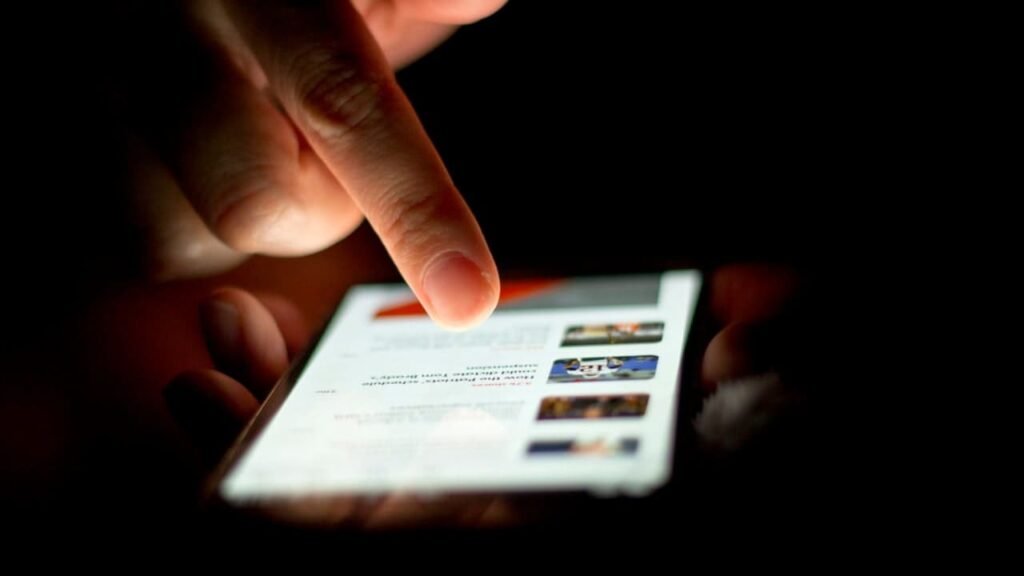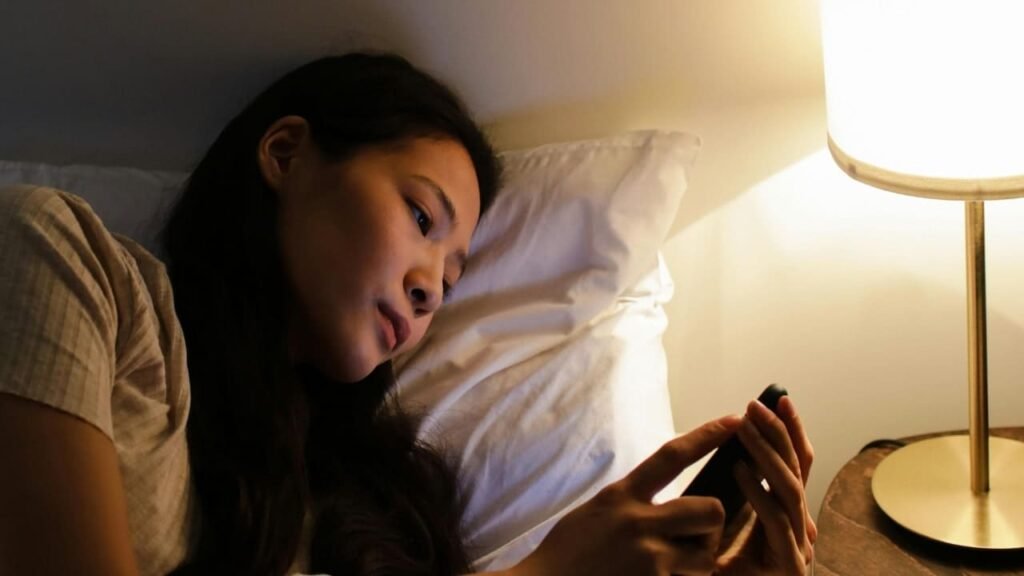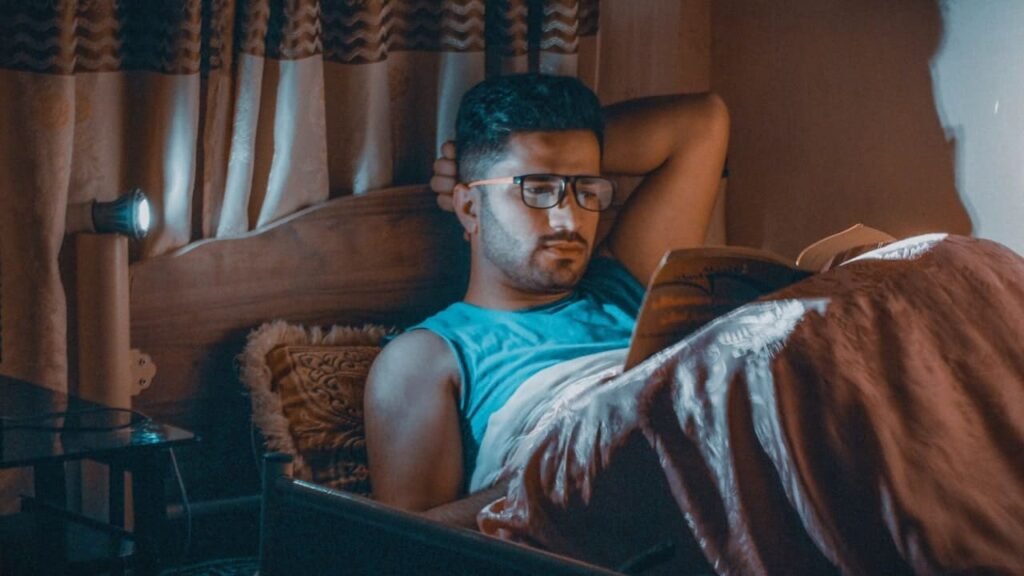
Table of Contents
Did you know? Your overtime with your phone can land you in a hospital.
And you have your addiction to blame for the lack of sleep. What addiction, you ask? Well, your late-night social media scrolling or high screen time could be the reason you’re tossing and turning at night.
Social media can rob you of your sleep. Excessive use, especially before bed, is linked to various sleep disturbances and problems. It affects both physical and mental health. But, don’t worry!
We have just the solution for you: simply swap your phone with a book! Read to sleep. Reading might just be the key to better sleep and a healthier mind. Let’s take an informed look at the negative effects of social media and explore how embracing a nightly reading habit can significantly improve your sleep quality and overall well-being.
The Problem: Social Media’s Impact on Sleep
This is the digital age and it is very difficult to find someone who isn’t connected to social media in some way. Digital connectivity has become a necessity and the platforms offer numerous benefits such as instant communication with friends and family and a wealth of information at our fingertips. But, there’s a dark side!
Studies have revealed that late-night scrolling or social media just before bed is like a thief in the night for good sleep. By design, these platforms are meant to captivate and keep users engaged for a long time. The glow of your phone in the dark is a beacon of sleep disruption.
The constant stimulation of the brain disrupts your sleep cycle and the blue light emitted from the screen inhibits melatonin production, a hormone required for sleep regulation.
There’s also the psychological impact of social media. It often leads to increased anxiety and stress. By consuming content ranging from ‘A Day in the Life of a Fitness Influencer’ to ‘The Simpsons Conspiracy Theory,’ you are being exposed to distressing news or the social pressures of comparison.
What is the result? A range of sleep-related troubles, be it difficulty falling asleep to interrupted sleep patterns.
The Negative Effects of Social Media on Sleep and Health

There are two sides to a coin. Similarly, social media has both positive and negative effects. And sometimes, the latter outweighs the former. Yes, these are disturbing your sleep and affecting your overall health. Poor sleep opens floodgates to a wide range of health issues including mental health. Research has linked chronic sleep deprivation to health concerns including weight gain, heart disease, decreased immune function and memory problems.
For us humans, sleep is no less important than food and water. The side effects of loss of sleep are severe and can worsen the negative effects of social media on mental health.
Here’s the truth: being glued to your screens is costing you a lot more than your time!
Understanding Sleep Disorders Linked to Screen Time

Dear reader, do you have social media FOMO?
In most cases, the fear of missing out on social media happenings or the latest dance reel can keep you up, resulting in disturbed sleep and even cutting it short.
Coming back to the artificial blue light from screens, it tricks the brain into thinking it’s still daytime and disrupts the natural sleep-wake cycle. Hence, the delay in the onset of sleep.
Add to this the stimulating nature of most social media content. Your mind is engaging in heated debates and busy catching up on celebrity news or gossip. At a time when your mind should be unwinding, mental alertness is increasing. Imagine the damage!
The Science Behind Sleep and Mental Health
Are you both sleep-deprived and anxious?
Sleep and mental health are interconnected. Along with waking up groggy in the morning, poor or disrupted sleep can lead to emotional instability and other mental health disorders. Don’t take my word for it! This is particularly well-researched.
Different studies show that sleep deprivation is linked to an increased risk of diminished cognitive function. The problem worsens or compounds when excessive social media use further contributes to poorer sleep quality, heightened anxiety, and even lower self-esteem.
This is nothing, but a vicious cycle of mental unrest!
Reading as a Remedy

But fear not, fellow night owls and screen addicts. We’ve got a secret weapon against those pesky blue lights. Drumroll, please!
And that is good old-fashioned books. Remember those? The importance of reading books cannot be stressed enough. Try this for a week. Instead of scrolling through your phone before bedtime, try turning the pages of a good book. Reading before bed can fix impaired sleep patterns. Replacing screen time with reading can prove to be a powerful antidote to social media-induced stress and anxiety.
Here’s what reading does to you:
- It not only calms the mind but also helps prepare the body for sleep.
- Reading has health benefits and can lower heart rate and blood pressure.
- Additionally, reading reduces stress.
Picture this: your last ‘like’ at night is a book chapter, not a cat video. Studies reveal reading before bed instead of phone scrolling helps you sleep faster and better. While social media excites and engages, reading can be a quiet, solitary activity that allows your mind to slow down and destress.
Repeat it like a mantra, ‘read to sleep.’
Practical Tips for Integrating Reading Into Your Nightly Routine
Now, the question is how will you develop a night-time reading routine to avoid disturbed sleep?
First things first, let us agree that a bedtime ritual that prioritizes the advantages of reading books over screen time can help. It is a signal to your body that it’s time to sleep. Reading will transform your sleep quality and overall health.
Here is how you can make books a part of your night-time and also your new best friends:
- Choose Calming Content: Pick books that help you engage and relax. Go for soothing and mood-boosting genres that can put a smile on your face. It could be fantasy, light fiction, even children’s literature or nonfiction focused on personal development.
- Make it a Habit: Establish a routine that emphasizes the health benefits of reading, setting aside time to read each night. Even 20 to 30 minutes can have a significant impact on your ability to fall asleep.
- Create a Reading Nook: Have a special spot for reading that’s cozy and inviting—think of a nice big comfy chair, soft lighting, and maybe a comforting blanket. Make sure you are away from those screens!
Consider reducing overall screen time throughout the day, especially during the hours leading up to bedtime. A warm cup of Lavender or Chamomile tea induces sleep. Also, make sure your sleeping environment is quiet, dark, and cool. Don’t forget that the aim is to counter the negative effects of excessive social media use, reduce sleep anxiety, and regulate the body clock.
P.S. Do let us know if you want some fantastic book recommendations!
Conclusion
Not just protein and exercise, sleep is equally important for your body and brain to function. We have seen that the negative impacts of social media on our sleep and overall health can be significant and multifaceted. But, it’s all about making simple and small lifestyle adjustments. If you incorporate books into the nighttime rituals by reading before bed, you can improve your sleep quality and overall health. Try replacing your nightly screen check with a chapter of a good book, and share your experiences! Start tonight— let your journey to better sleep begin.
To keep getting clarity on such interesting topics, please subscribe to Clarity Circuit.
Recommended Articles
If you found this topic interesting, you might also enjoy reading these articles:


